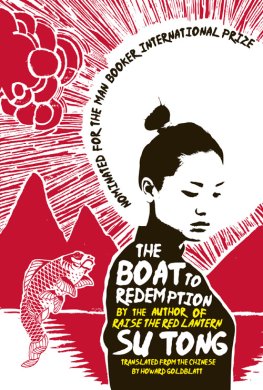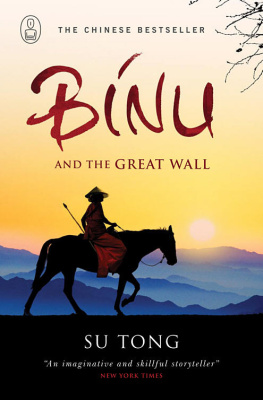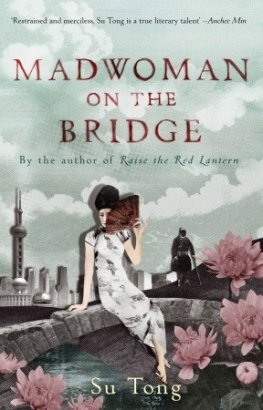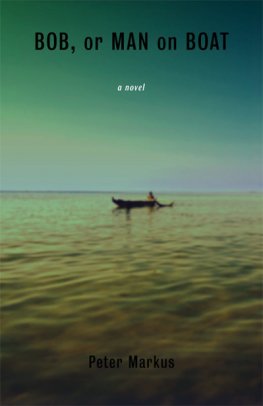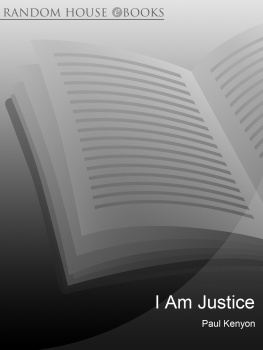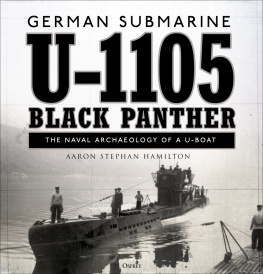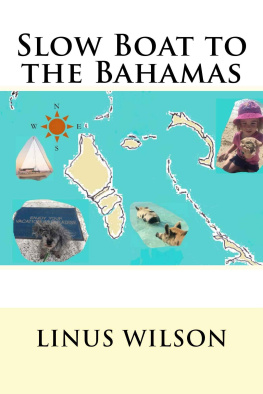Su Tong
The Boat to Redemption
MOST PEOPLE live on dry land, in houses. But my father and I live on a barge. Nothing surprising about that, since we are boat people; the terra firma does not belong to us.
Everyone knows that the Sunnyside Fleet plies the waters of the Golden Sparrow River all year round, so life for Father and me hardly differs from that of fish: whether heading upriver or down, most of our time is spent on the water. Its been eleven years. Im still young and strong, but my father, a rash and careless man, is sinking inexorably into the realm of the aged.
Ever since the autumn he has been exhibiting strange symptoms, some age-related, some not. The pupils of his eyes are shrinking and becoming increasingly cloudy sort of fish-like. He hardly ever sleeps any more; from morning to night he observes life on the shore through fish eyes filled with dejection, occasionally managing to doze a bit in the early morning hours, as he fills the cabin with a faint fishy odour, the earthy smell of a carp, at times especially heavy even worse, I think, than a dead fish on a line. Sighs of torment escape from his mouth one minute and transparent bubbles merrily appear the next. Ive noticed spots on the backs of his hands and along his spine; a few are brown or dark red, but most glisten like silver, and its these that are beginning to worry me. I cant help thinking that my father will soon grow scales on his body. He has lived an extraordinary life, and Im afraid hes on the verge of turning into a fish.
Anyone who lives on the banks of the Golden Sparrow River is familiar with the martyr Deng Shaoxiang. Hers is a name that appeals to all, refined or common, a stirring musical note in the regions revolutionary history. My fathers fate is tied up with the ghost of Deng Shaoxiang. For Ku Wenxuan, my father, was once Deng Shaoxiangs son. Please note that I said once. I had no choice, I had to say it, however inconsequential a word it might seem to you. You see, it is the key to unlocking the story of my fathers life.
The heroic deeds of underground Party member Deng Shaoxiang, of which there is both a long and a short version, are known to all local residents. The succinct version has been etched on a granite memorial stone and erected at the Milltown chess pavilion where she was killed. Each year, on tomb-sweeping day, children from throughout the region come to Milltown on foot for those who live nearby and by boat or tractor for those coming long distances and when they reach the pier they are greeted by road signs that point to a hexagonal chess pavilion to the southwest:
Tomb-sweeping, straight ahead three hundred yards
Straight ahead one hundred yards
Straight ahead thirty yards
In fact theres no need to bother with the signs, since on tomb-sweeping day a banner with a conspicuous slogan stretching across the top of the pavilion is visible from the pier:
SOLEMNLY COMMEMORATE THE HEROIC
SPIRIT OF THE REVOLUTIONARY
MARTYR DENG SHAOXIANG
The memorial stone, some two metres high and a metre wide, stands inside the pavilion, and while the homage is virtually identical to all commemorations of martyrs, children are expected to commit it to memory before returning home, so they can use it in school essays. But what visitors find most impressive is the bas relief on the back of the stone: it is the image of a woman with a basket on her back, awesome anger in her eyes as she gazes to the southeast; and if you look carefully, you can see a childs head poking up over the edge of the basket, a tiny round head. Look even closer and you can see a little tuft of hair.
Every place has its legends. Deng Shaoxiangs legend is a bewildering one. The most popular version has it that her father owned a coffin shop in the town of Phoenix, which earned her, his only child, the nickname Coffin Girl. Just how she strode on to the path of revolution is a bone of contention. Hometown people say she developed a loathing for evil people and evil deeds in childhood, and constantly sought ways to better herself. While other girls sought riches over poverty, she sought poverty over riches. She had uncommonly good looks, her family was well off, and yet she fell in love with an impoverished fruit-grower who sold Chinese bayberries at the school entrance. But when we sift the sands of gossip to find a kernel of truth, we see that this version reveals only selected facts about her life and is little more than propaganda: that is, she chose her path for love, for an ideal. A second version of events, once popular in and around her husbands birthplace of Nine Dragons Hill, tells a different story. Soon after eloping to Nine Dragons Hill with her peasant lover, so the story goes, she had a change of heart, unhappy with a life of tending fruit trees and enduring the taunts of the muddle-headed rustics around her. At first, she voiced her unhappiness only to her husband. But before long, her in-laws suffered from her tirades too, and the arguments grew so violent that one day she simply stamped her foot and marched off to join the revolution. Most people felt that this account had the air of marketplace gossip and made Deng Shaoxiang appear unsavoury. Had she joined the revolution simply because of unrealistic aspirations? Had she become a revolutionary out of pettiness? This version of events made the rounds for a while, like an evil wind, but it was relatively short-lived. A team of investigators was sent to stamp out the rumour. Three public-criticism sessions were called, at which one of Deng Shaoxiangs sisters-in-law plus the wife of a landlord and two ageing rich peasants were openly criticized. From then on, even among the poor peasants of Nine Dragons Hill, no one dared spread such talk.
People from both Deng Shaoxiangs hometown of Phoenix and her husbands hometown of Nine Dragons Hill found what she had done unimaginable. Who wouldnt? This frail young woman took on the perilous task of smuggling guns and ammunition to guerrilla fighters who, like her, moved stealthily up and down the banks of the Golden Sparrow River during a reign of terror. It was a role for which she was supremely gifted and well placed. The Phoenix coffin shop was an ideal operations base. News of a death in the area always travelled first to her fathers shop, and whenever there was a need to bring weapons to the fighters, she would return to her parents home, secrete the weapons and ammunition in a corpse-filled coffin, then dress in funeral garb and wail all the way to the cemetery. Once the coffin was in the ground, her mission was accomplished. The rest was up to the guerrillas. And so people said that Deng Shaoxiang relied upon three treasures to carry out her staggering task: a coffin, a corpse and a cemetery.
The mission that day was relatively easy: she was to travel to the Milltown chess pavilion and deliver five pistols to an underground comrade known only as the Chess King. Disdaining the enemy, she chose not to find out if thered been any recent deaths in the Milltown area, and neglected to learn the location of the Milltown cemetery. She merely confirmed the name of the contact and where he was supposed to be. For the first time, she chose a basket containing a child instead of a coffin to deliver the weapons. She could not have known that this departure from her three treasures would seal her doom: she would not return from Milltown.
After secreting the five pistols in the babys swaddling clothes, Deng Shaoxiang hoisted the basket on to her back and boarded a coal barge for the trip to Milltown. At the pier she asked for directions to the chess pavilion.
That is where men play Chinese chess, a man said, pointing southwest to a six-sided pavilion. What business does a woman have there? Do you play?

